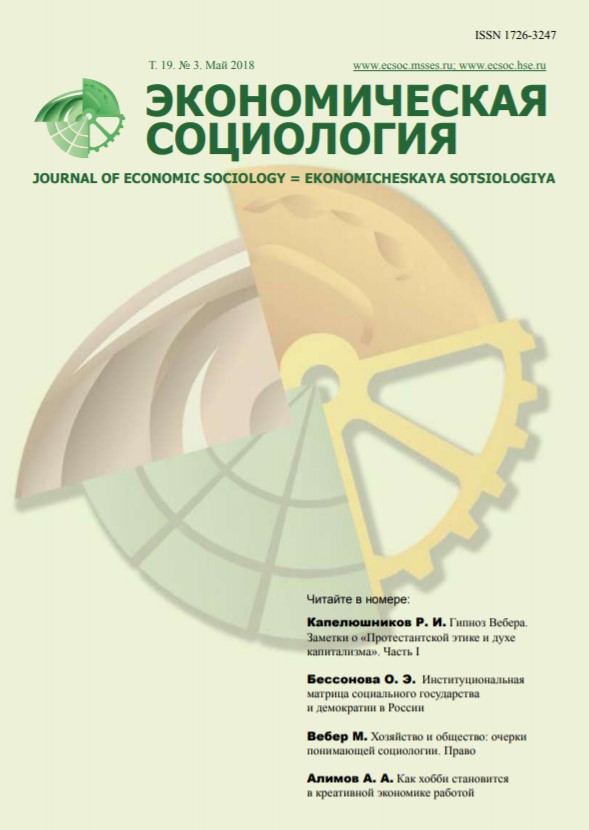Weber’s Hypnosis. Notes on “The Protestant Ethics and the Spirit of Capitalism”. Part I
Abstract
This paper is the first of a two-part critical essay on the discursive methods used by great German sociologist Max Weber in his classic study on the relationship between economy and religion “The Protestant
Ethics and the Spirit of Capitalism” (1904–1905). The author examines in detail the place of modern (rational) capitalism in Weber’s general taxonomy of the various historical forms of economic organization and describes its major differences from alternative types of capitalism, for example, political, booty or robber, and adventure capitalism. Another important issue also discussed in the paper is the relationship between two central Weberian concepts: protestant ethics and the spirit of capitalism. The author shows that Weber’s authentic thesis on the genesis of modern capitalism was fatally misinterpreted by almost all of his critics. Special attention is paid to the religious exegetics provided by Weber in his work. A key point in his theological exercises was a notion of “psychological premium” that adherents of ascetic Protestantism obtained if they achieved success in their worldly activities, such as occupational careers or profit-seeking. In their eyes this signaled that they were destined by God to salvation and thus relieved the burden of religious doubts associated with the absolute incomprehensibility of God’s plans. In such a way Weber explained how Protestantism might become an engine of modern capitalism. HHowever, Weber’s exegetics of religious texts was subject to devastating criticism by Canadian sociologist R. MacKinnon who demonstrated Weber’s deep theological illiteracy. Counter-criticism with a defense of the Weberian analytical scheme was provided by American sociologist D. Zaret. Commenting on this discussion, the author concludes that the arguments of Weber’s critics are much more convincing since his exegetics of religious texts seem to be at best partially, and at worst totally, incorrect. This implies that the pivotal thesis of “The Protestant Ethics and the Spirit of Capitalism” of Protestantism as a launching pad for modern capitalism is devoid of solid behavioral foundations.













